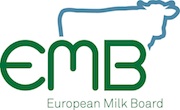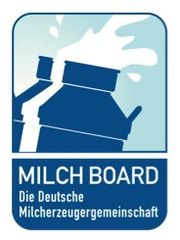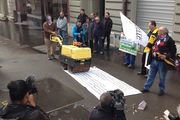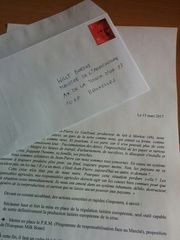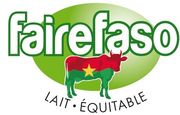EMB Newsletter April 2017
Newsletter as PDF
Contact
EMB - European Milk Board asbl
Rue de la Loi 155
B-1040 Bruxelles
Phone: +32 - 2808 - 1935
Fax: +32 - 2808 - 8265
Dear dairy farmers and interested parties,

In Spring 2016, there were many challenges facing the Irish agri-food sector - particularly the dairy sector - but a threat to our single largest export market wasn’t one of them. One year later, that threat is a reality and much of our government’s planning and policymaking takes place in the shadow cast by ‘Brexit’.
British Prime Minister Theresa May triggered Article 50 on March 29, starting official Brexit negotiations between the United Kingdom and the European Union. Ireland is the Member State most exposed to the UK decision to leave and within that alarming context, Irish farming and agri-food are the sectors most exposed. The United Kingdom is Ireland’s largest trading partner for food with 30% of dairy exports and 60% of cheese exports.
It is important to note that Ireland is not alone within the EU in terms of exports. Some of the key EU Member States export very significant amounts of food products to the UK. The 64 million inhabitants of the United Kingdom rely on food imports and our governments must ensure that we can continue to supply this market.
An article on Brexit and the Irish point of view with key issues for the agri-food sector as well as a number of demands to protect the Irish agriculture can be found in this newsletter. We have to build alliances at EU level as other Member States have similar interests and a combined approach for the future market with the UK should be taken. Brexit is a major challenge and it is hugely important that realism enters the negotiations at the earliest stage possible and very long-standing trading relationships are protected in the interests of both parties.
Finally, some good news concerning the EU support scheme to reduce milk production: nearly 44,000 farmers from across the EU have applied for support for agreeing to voluntarily reduce their production of milk by nearly 852 000t in the last quarter of 2016. The high participation of producers, especially from strong production countries shows that farmers are willing to reduce their deliveries.
The voluntary reduction scheme has had a direct impact on the milk market with current EU average prices of more than 33 cent. The EU programme has clearly worked out! Milk producers from all over Europe consider voluntary reduction as an important instrument for the future and call for its integration into a regular crisis mechanism.
John Comer, EMB Board member and President of Irish Creamery Milk Suppliers Association (ICMSA)
EU volume reduction: high participation in EU programme
BREXIT and Irish farming
The German Federal Cartel Office expresses its opinion on supply conditions of raw milk
Demonstration in Bern - Federal Council member Schneider-Ammann steamrollers a law through!
Dairy industry outraged by report of the German Cartel Office
Letter campaign by European dairy farmers
Hearty congratulations: Award for Corporate Social Responsibility goes to Burkinabe-Belgian Fair Milk project
Impressum
European Milk Board asbl
Rue de la Loi 155
B-1040 Bruxelles
Phone: +32 2808 1935
Fax: +32 2808 8265
E-Mail: office@europeanmilkboard.org
Website: http://www.europeanmilkboard.org

